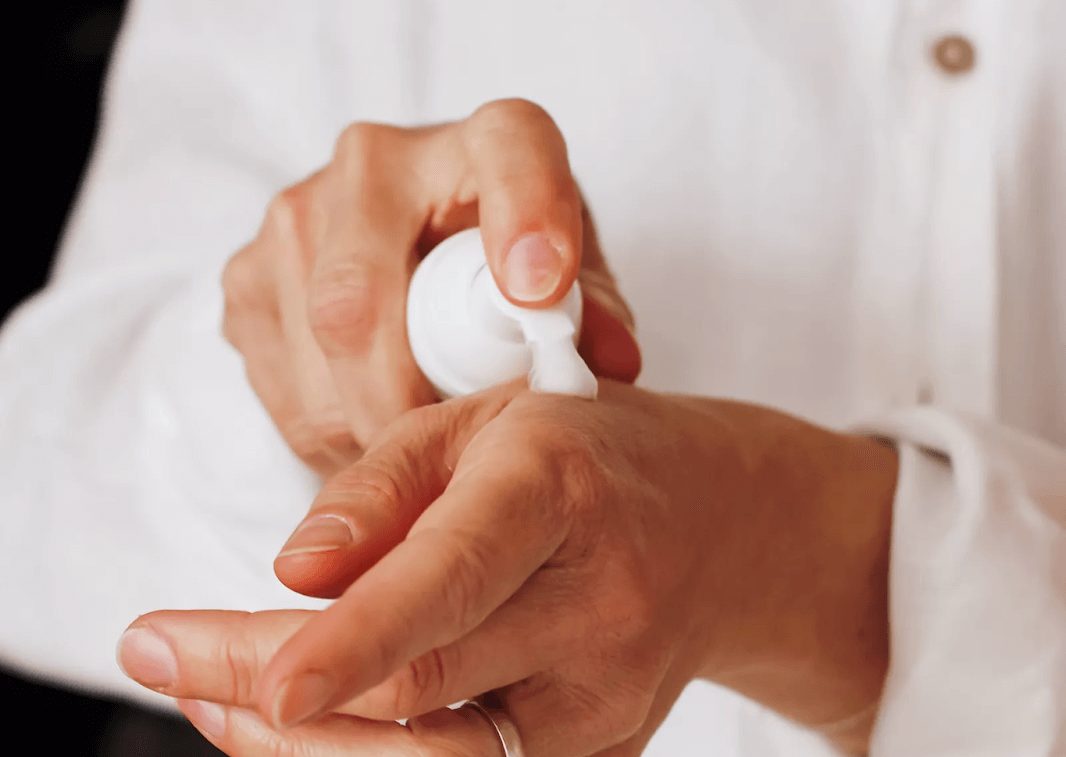Tips & Advice
How to Combat Dry Skin This Winter
- What causes dry winter skin?
- What are the symptoms of dry winter skin?
- 6 ways to combat dry skin this winter
- Combat dry skin: FAQs
Winter is on the horizon and for some of us this marks the arrival of dry, flaky skin as we battle with the harsh changing of the seasons. The chillier months can be tough on our skin, as cold, menacing winds, low humidity levels and dry indoor heat combine to cause dryness.
At Cuccio, we understand how frustrating this can be, which is why we have produced this ultimate guide to help you combat dry skin. If you’re worried about your skin losing its glow this winter, then you’ll be pleased to know that there are steps you can take to keep your skin looking moisturised and healthy.
What causes dry winter skin?
A reduction in humidity levels and lower temperatures combine to create conditions that can be a nightmare for your skin. The skin barrier, also known as the outer surface of the epidermis, contains a mixture of lipids and dead skin cells. When your skin barrier is damaged, this can lead to dry and irritated skin.
This happens as a result of a lack of moisture, which is essential if the skin barrier is going to perform properly and becomes an increasing problem in the winter. When you’re outdoors during the colder months your skin is exposed to cold temperatures and harsh winds that strip the skin of its natural moisture. Then as soon as you enter an indoor environment, you have indoor heating to factor in, which reduces humidity in a room.
That’s before we even start to look at other contributing factors like hot showers, excessive use of soap and other environmental conditions that come into play.
What are the symptoms of dry winter skin?
Once the skin barrier is damaged during those cold, winter months, you may start to experience the following:
- Flaking
- Itching and irritation
- Rough skin textures
- Cracks
- Redness
- Stinging and burning sensations
The medical term for dry skin is xerosis. If you start using the right treatment at the first signs of the above symptoms, then you should be able to reduce its severity significantly and treat your dry skin effectively.
6 ways to combat dry skin this winter
If you don’t know where to start, then you can follow these simple steps to treat dry skin this winter.
Adjust your skincare routine
You guessed it – the first thing you will need to consider is adjusting your usual skincare routine, as skin requires different treatments during the winter. This may involve simplifying your routine if you’re experiencing sensitive or irritated skin.
It’s all about trying to keep your skin barrier’s moisture levels healthy. Once you feel like you’ve achieved this, you can start adding other treatments back into your routine. Think about adding occlusives to your routine and using overnight treatments. Here are some products we think can help:
- Artisan Shea & Vetiver Intense Hydrating Treatment: A hydrating treatment to moisturise, nourish and smooth parched rough skin.
- Whipped Hemp Light Lotion: Hydrating and nourishing, rich in essential fatty acids and antioxidants flavonoids.
- Revitalizing Nail & Cuticle Oil Complex – Milk & Honey: Conditions and helps nourish dry cuticles and hands.
Go easy on exfoliants and scrubs
Usually, we would recommend the use of exfoliants and scrubs, but during the colder months, it’s worth considering easing your use of these treatments, as they can damage the skin barrier.
If your skin looks slightly flaky, then you may want to consider using a more gentle exfoliant. However, if it’s cracked and irritated, then we would recommend avoiding exfoliants until your skin recovers fully.
Stay hydrated
This is something you should be doing all year round, but it’s also hugely important during the winter. Drinking plenty of water helps keep your skin hydrated, ensuring it appears smooth and looks glowing. Not having enough water can lead to your skin drying out.
Another tip is to eat food that contains high amounts of antioxidants and omega-3 fatty acids, as this helps your body make healthy skin cells.
Avoid overly hot showers and baths
This one can be difficult to stick to during the winter, as there is nothing better than a hot shower when temperatures start to fall. Unfortunately, hot water can strip away your skin’s natural oils faster, so it’s better for your skin to be exposed to lukewarm temperatures. You should also consider gently patting your skin with a soft towel when you get out, rather than vigorously drying yourself.
Every time you wash you strip your skin of its natural oils, which is why it’s important to moisturise as soon as you come out of the bath or shower. Try using revitalising products like these:
- Butter Blend – Milk & Honey Butter: A non-oily, intense hydrating treatment for silky smooth skin.
- Butter Blend – Coconut & White Ginger: Releases moisturising emollients every two hours for 24-hour hydration.
Use a humidifier
A humidifier helps to add moisture back into the air, which your skin will appreciate when your heating is cranked up. Having moisture in the air helps to naturally moisturise your skin and prevent dryness.
Protect your skin
It might sound crazy, but even in the winter your skin can be exposed to harmful UV light, so make sure you continue to use sun cream. To prevent skin damage when the sun is shining, add some sun cream in the morning as part of your daily routine.
You can also support your skin by wearing protective clothing, like gloves to prevent dry hands. This will help to stop your skin from drying out when exposed to harsh winter elements.
Combat dry skin: FAQs
What are the best ingredients to look for to treat dry skin in the winter?
Look for a moisturiser that contains hydrating ingredients such as shea butter, glycerine and niacinamide. It’s important you buy quality products that use the very best natural ingredients.
Which vitamin helps dry skin?
Taking vitamins and nutritional supplements that contain vitamin D, vitamin C, fish oil and collagen can help keep your skin hydrated and nourished.
What is extremely dry skin a symptom of?
If you suffer from severe dry skin, then you may have a medical condition that requires you to see a doctor. If at-home remedies and moisturisers aren’t effective, then a doctor will be able to recommend using prescription treatments and other alternatives.

